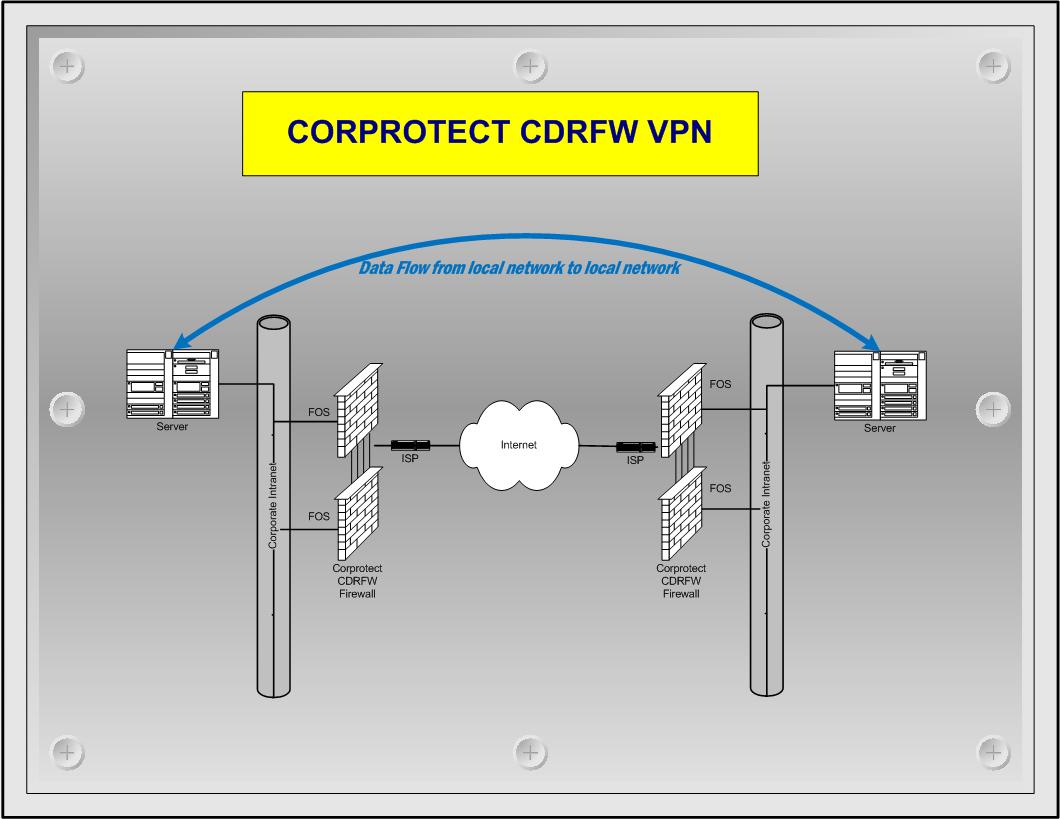
Virtual Private Networking (VPN)
A virtual private network (VPN) is a secured private network connection built on top of publicly accessible infrastructure, to provide remote offices or individual users with secure access to their organization's network. A virtual private network can be contrasted with an expensive system of owned or leased lines that can only be used by one organization. The goal of a VPN is to provide the organization with the same capabilities, but at a much lower cost.
The CORP-VPN utilizes a kernel and user space VPN solution known as IPSEC. IPsec is a dual mode, end-to-end, security scheme operating at the Internet Layer of the Internet Protocol Suite or OSI model Layer 3. Some other Internet security systems in widespread use, such as Secure Sockets Layer (SSL), Transport Layer Security (TLS) and Secure Shell (SSH), operate in the upper layers of these models. Hence, IPsec can be used for protecting any application traffic across the Internet. Applications need not be specifically designed to use IPsec. The use of TLS/SSL, on the other hand, must typically be incorporated into the design of applications.
- Confidentiality - IPsec can ensure that data cannot be read by unauthorized parties. This is accomplished by encrypting data using a cryptographic algorithm and a secret key -- value known only to the two parties exchanging data. The data can only be decrypted by someone who has the secret key.
- Integrity - IPsec can determine if data has been changed (intentionally or unintentionally) during transit. The integrity of data can be assured by generating a message authentication code (MAC) value, which is a cryptographic checksum of the data. If the data is altered and the MAC is recalculated, the old and new MACs will differ.
- Peer Authentication - Each IPsec endpoint confirms the identity of the other IPsec endpoint with which it wishes to communicate, ensuring that the network traffic and data is being sent from the expected host.
- Replay Protection - The same data is not delivered multiple times, and data is not delivered grossly out of order. However, IPsec does not ensure that data is delivered in the exact order in which it is sent.
- Traffic Analysis Protection - A person monitoring network traffic does not know which parties are communicating, how often communications are occurring, or how much data is being exchanged. However, the number of packets being exchanged can be counted.

